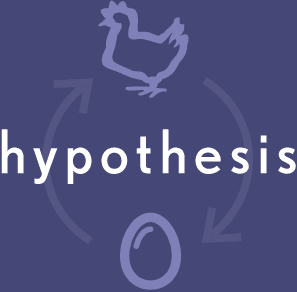At this stage you should look at the ways of devising hypothesis. There are two ways of formulating hypothesis. A hypothesis can be the result of deductive reasoning or it can be the consequence of inductive reasoning.
Deductive reasoning moves from the general to the specific. It involves drawing specific conclusion from some general principle/assumptions. Deductive logic of “if………….then” is frequently used to frame testable hypothesis. For example, if we accept that all birds have wings (premise # 1), and that sparrows are birds (premise #2), then we conclude that sparrows have wings.

Photosynthesis
If all green equire sunlight for photosynthesis, then any green plant when placed in dark would not synthesize glucose, the end product of photosynthesis, then any green plant when placed in dark would not synthesize glucose, the end product of photosynthesis. The other way of reasoning used in the formulation of hypothesis is inductive reasoning which is reasoning form the specific to the general. It begins with specific observations, and leads to the formation o general principle. For instance, if we know that sparrows have wings and are birds, and we know that eagle, parrot, hawk, crow are birds, then we induce (draw conclusion) that all birds have wings, the science also, therefore, uses inductive methods to generalize form specific events.
In fact sometimes scientists also use other ways to form a hypothesis, which may include (1) intuitions or imagination (2) esthetic preference (3) religious or philosophical ideas (4) comparison and analogy with other processes (5) discovery of one thing while looking for some other thing. These ways can also sometimes form basis for scientific hypothesis. Hypotheses as you already know, are subjected to rigorous testing.

Hypothesis to Possible Falsification
Repeated exposure of a hypothesis-to-possible falsification increases scientist’s confidence in the hypothesis when it is not falsified. Any hypothesis that is tested again and again without ever being falsified is considered well supported and is generally accepted. This may be used as the basis for formulating further hypothesis. So there is soon a series of hypothesis supported by the results of many tests which is then called a theory. A good theory is predictive and has explanatory power. One of the most important features of a good theory is that it may suggest new and different-hypothesis. A theory of this kind is called productive.
However even in the case of productive theory the testing goes on. In fact many scientists take it as a challenge and exert even greater efforts to disprove the theory. If a theory survives this skeptical approach and continues to be supported by experimental evidence, it becomes a scientific law. A scientific law is a uniform or constant fact of nature; it is virtually an irrefutable theory. Biology is short in laws because of elusive nature of life.
Examples of biological laws are hardy-Weinberg law and Mendel’s laws of inheritance. You will learn about then in later chapters… you can see that laws are even more general than theories and afford answers to even more complex questions, therefore there are relatively a few laws in biology.
